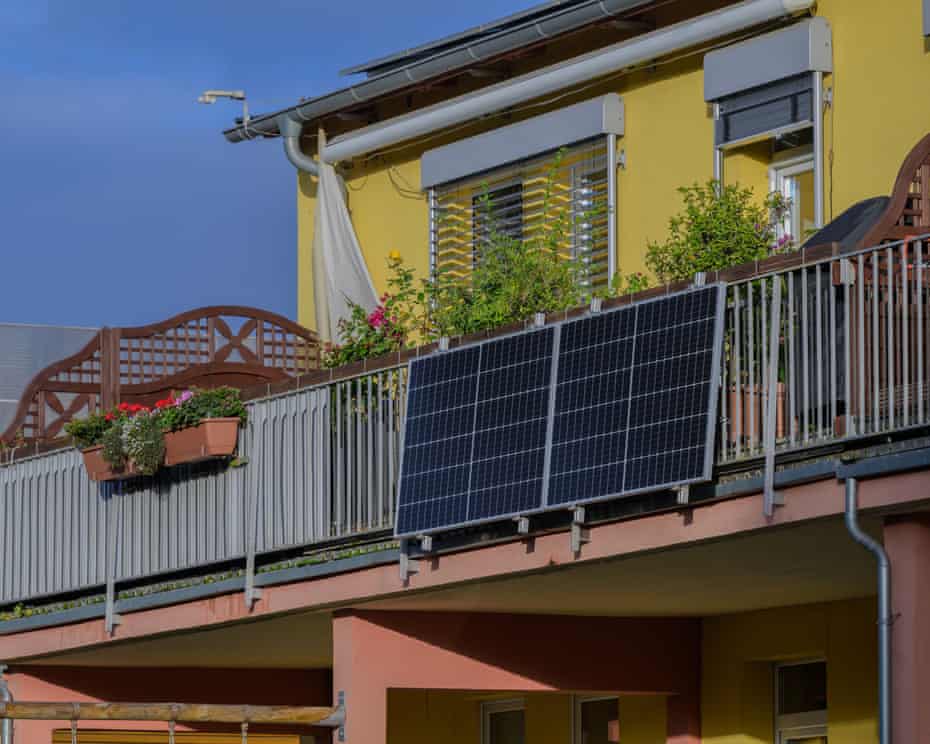Balcony Solar Breakthrough: Clean Energy Coming to UK Apartments
Flat residents and renters in Britain may soon harness the sun’s power from their balconies, as the UK government launches a consultation to legalize “plug-in” balcony solar systems, a technology already transforming energy use across Europe. The initiative, part of a broader roadmap to triple the UK’s solar capacity to 45–47 gigawatts by 2030, aims to make renewable energy accessible to millions living in apartments, where traditional rooftop solar is often impractical.
Popularized in Germany as Balkonkraftwerk (balcony power plants), these DIY solar panels, typically outputting up to 800 watts, plug directly into a home’s power socket, powering appliances like Wi-Fi routers, kettles, and TVs. In Germany, approximately 1.5 million apartments have adopted these systems, saving households up to 30% on electricity bills—around £80–£230 annually—while recouping costs of £340–£680 within six years due to no installation fees. Spain, Italy, Poland, and France have also seen growing adoption, with panels mounted on balcony railings or floors, capitalizing on urban vertical spaces.
In the UK, however, strict regulations have prohibited plug-in solar systems, requiring professional installation due to concerns over electrical safety, building aesthetics, and structural integrity. Unlike European countries where balcony panels can be plugged into standard sockets, British wiring standards demand certified installers, and most balconies lack outdoor sockets. Solar Energy UK highlights additional hurdles, such as planning policies and the absence of balcony electrical infrastructure. “The installation of all electrical equipment comes with risks,” said Gemma Grimes, director of policy at Solar Energy UK. “These must be fully understood before widespread rollout.”
The government’s consultation, announced by Energy Minister Michael Shanks, seeks to address these barriers, aligning with Labour’s clean energy agenda. “Through solar, we’re rolling out one of the cheapest and quickest forms of energy, helping families save hundreds on bills while tackling the climate crisis,” Shanks said. The strategy also explores solar installations on warehouse roofs and carport canopies, with fitting panels on 20% of large UK warehouses potentially generating 15 gigawatts—half the targeted solar growth by 2030.
For flat residents, balcony solar offers a renter-friendly solution. Plug-in systems, like those from EcoFlow or Robinsun, are portable, requiring no permanent fixtures, and can be adjusted to track sunlight, boosting efficiency. A 400-watt panel could generate up to 420 kilowatt-hours annually, powering small appliances and reducing reliance on fossil-fuel-based grid electricity. Environmental benefits are significant, with each system cutting carbon emissions by offsetting grid power, often derived from coal or gas.
Challenges remain, including securing landlord or building management approval, especially for listed buildings or conservation areas, and ensuring safety in windy conditions. Renters may need to negotiate with landlords, though portable systems mitigate some concerns. Government grants like ECO4 and the 0% VAT scheme could offset costs for professionally installed systems, but plug-in kits remain ineligible for such subsidies.
Campaigners, including Greenpeace UK’s Lily-Rose Ellis, welcome the move. “For too long, flat residents have been excluded from the solar revolution. This is a commonsense step toward energy security and lower bills,” she said. As the consultation progresses, Britain’s urban dwellers may soon join millions across Europe in turning their balconies into mini solar power stations, marking a pivotal step toward a greener future.
